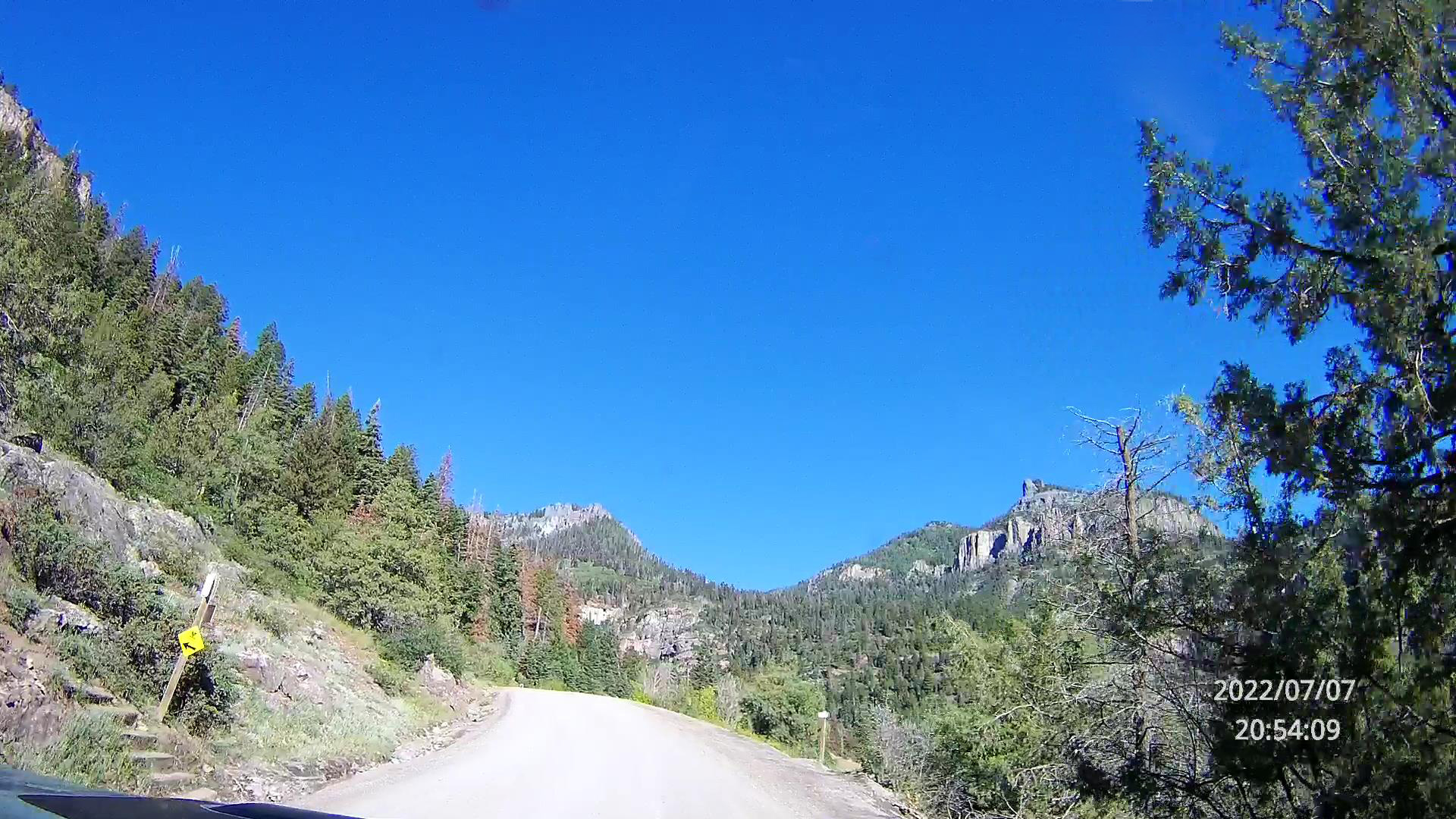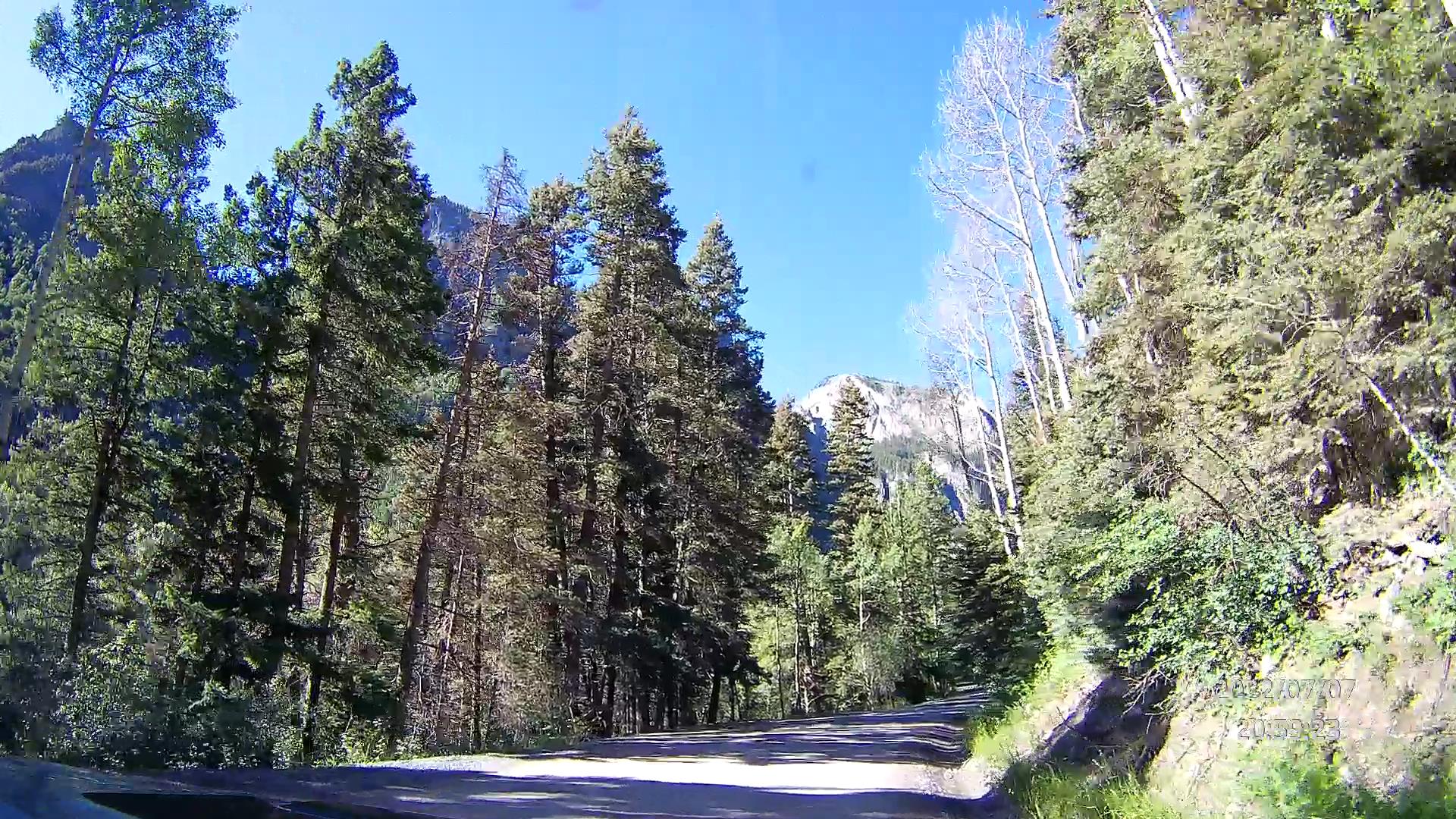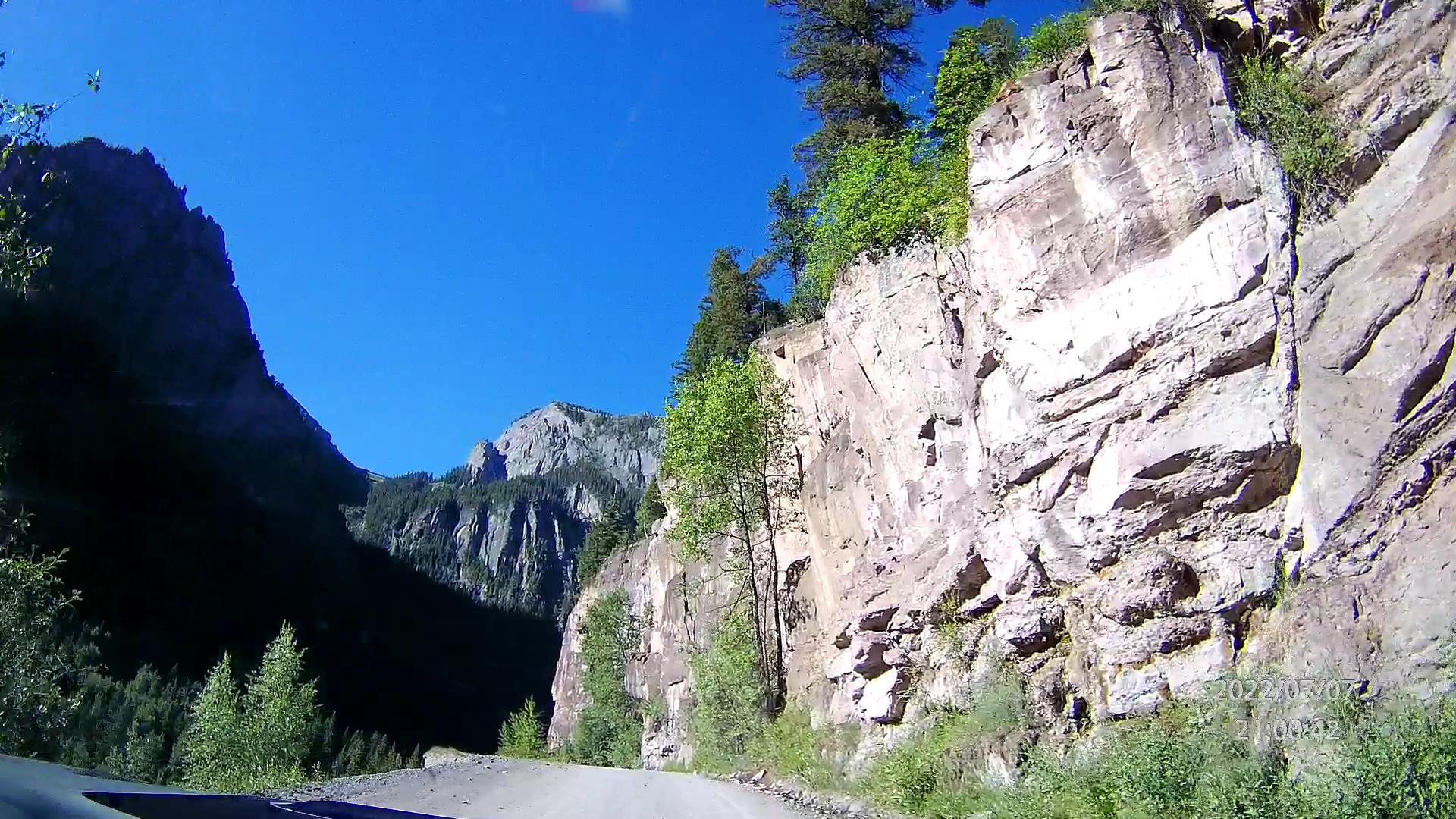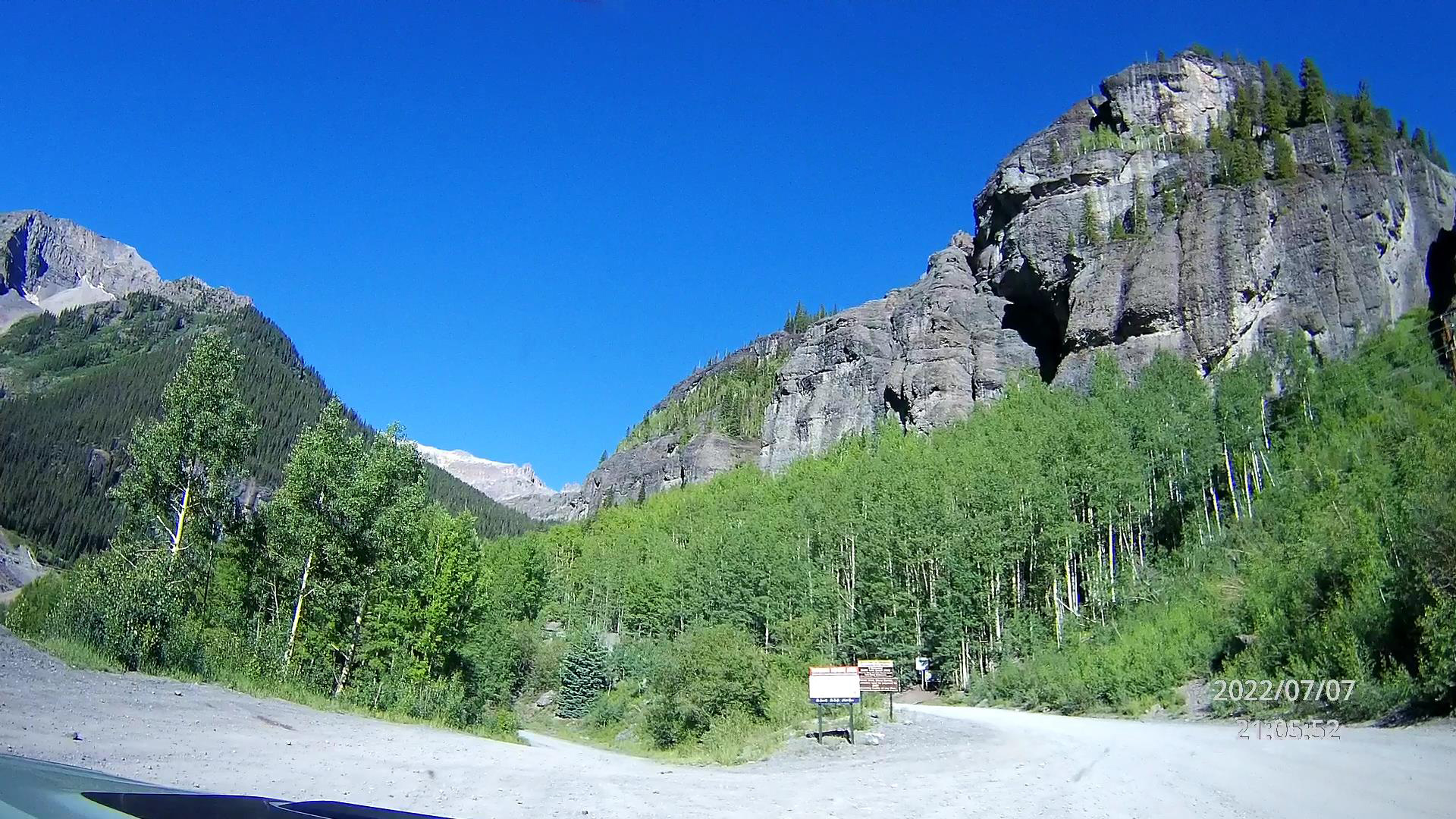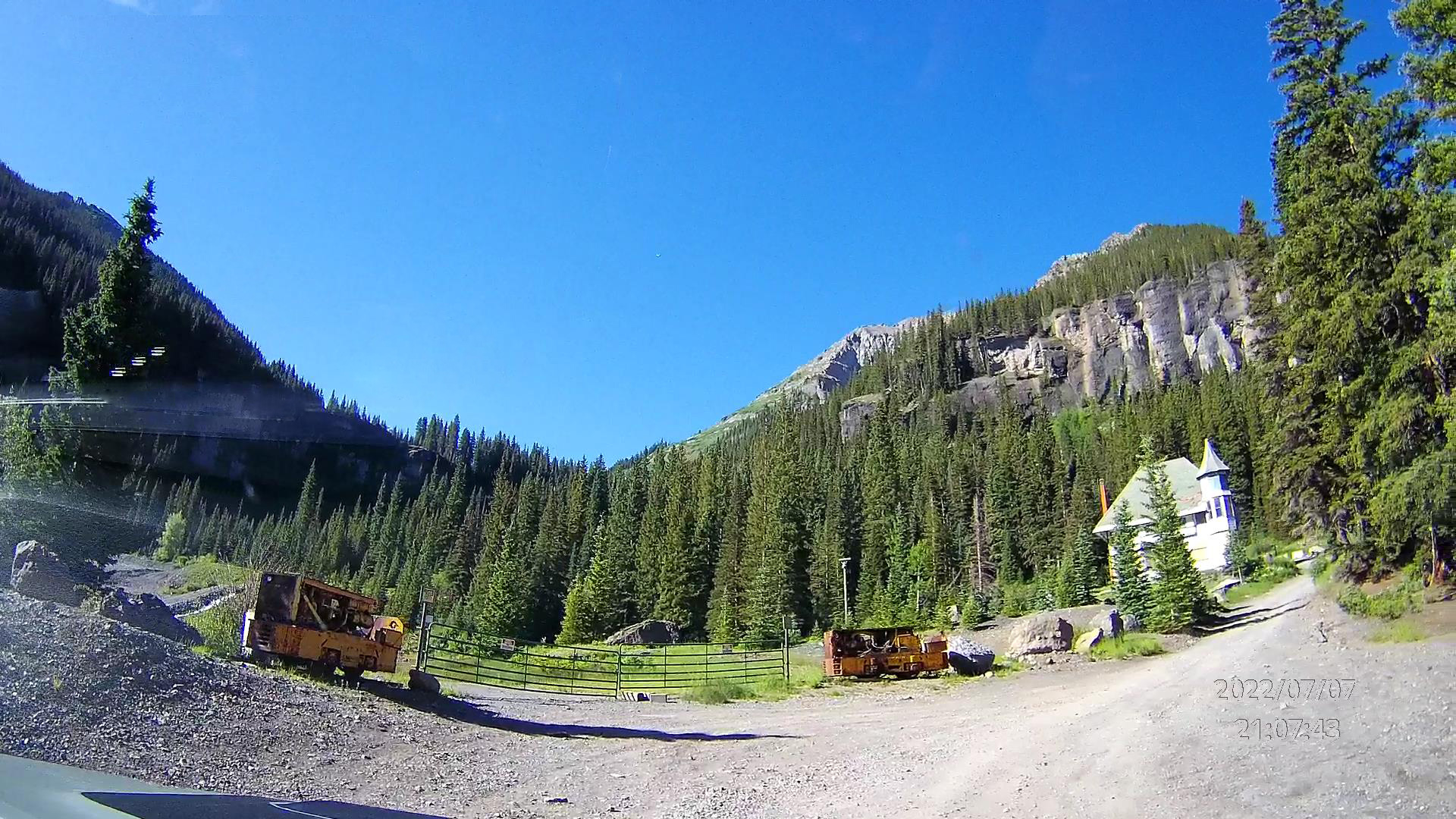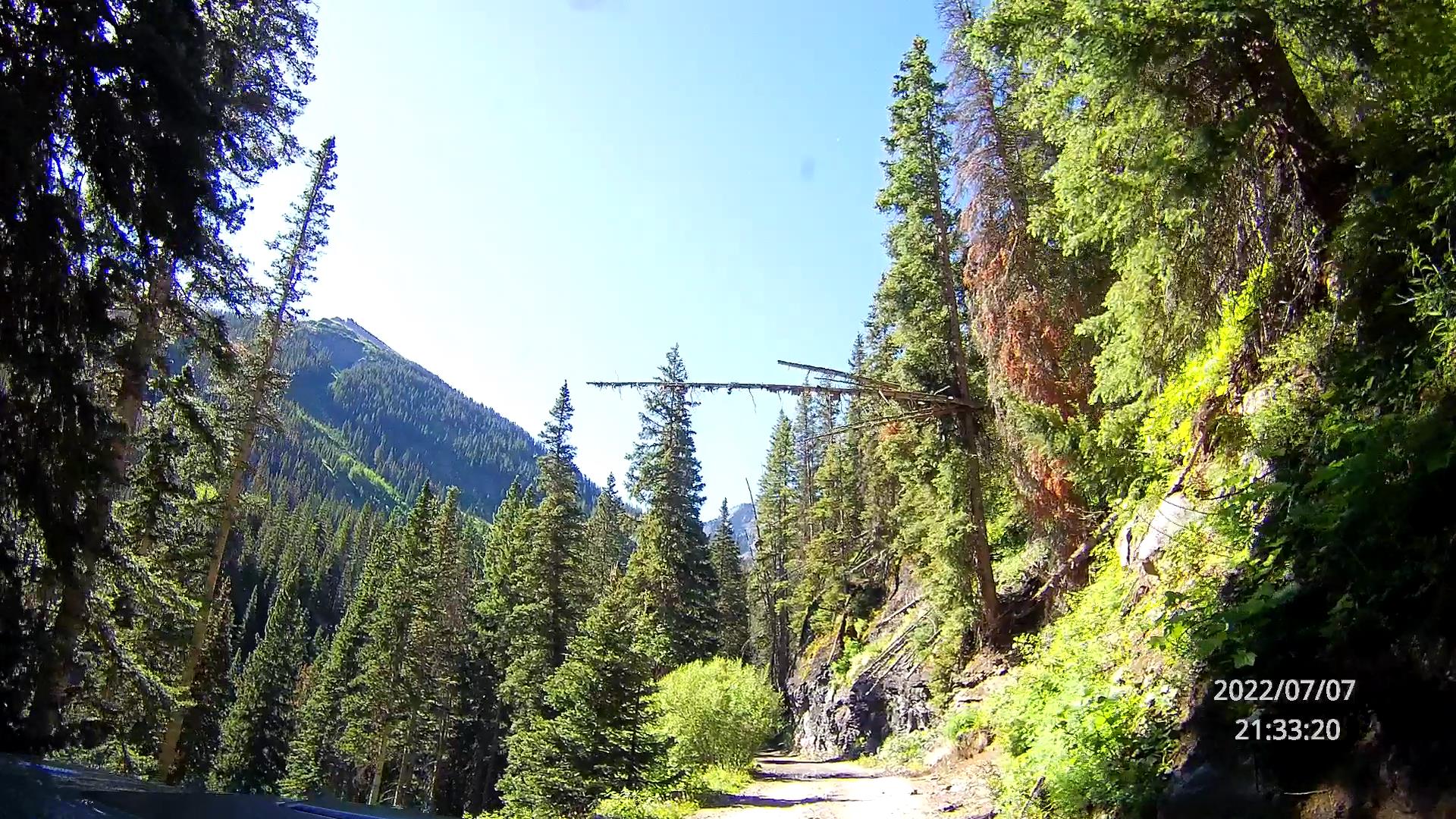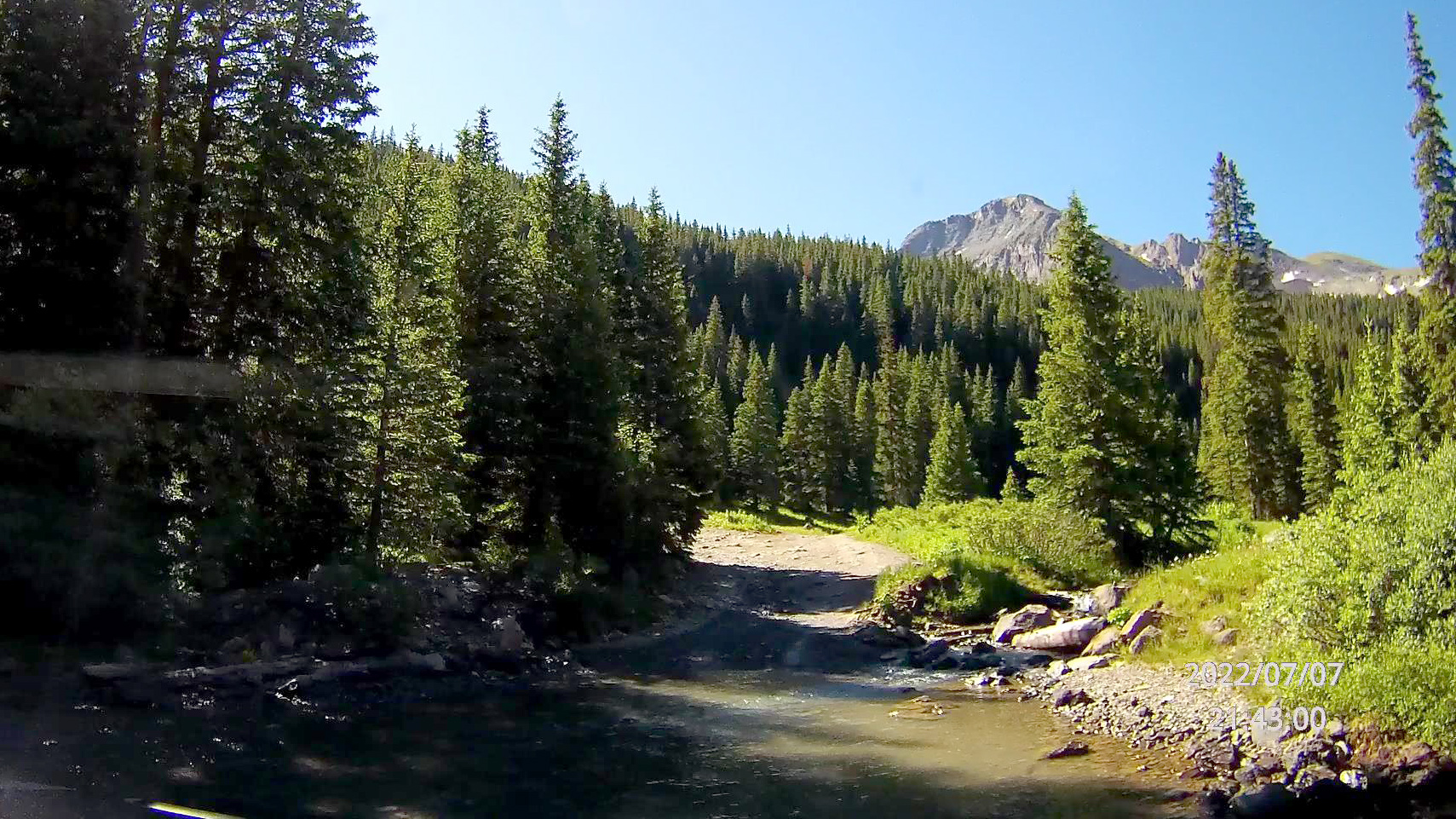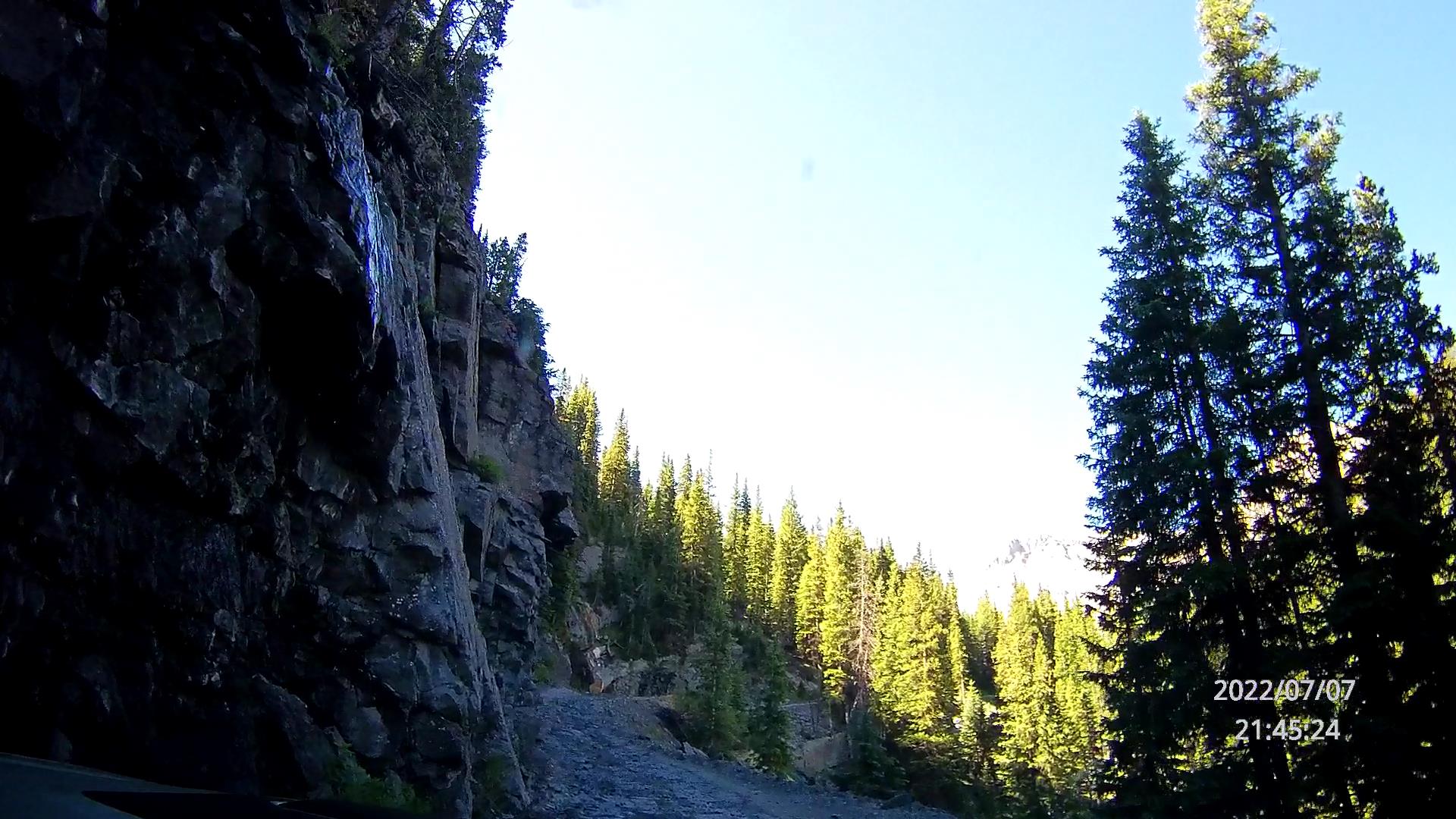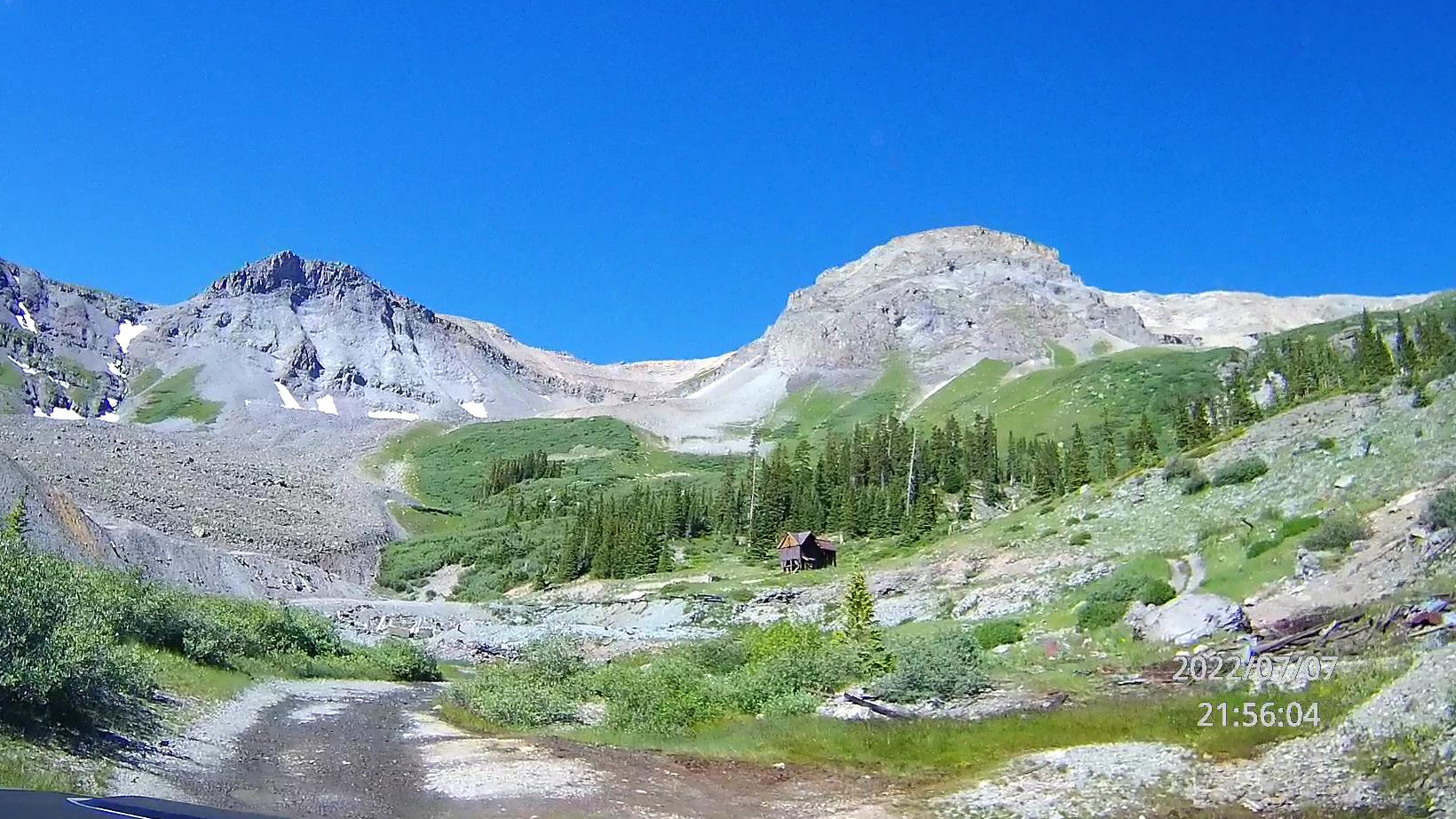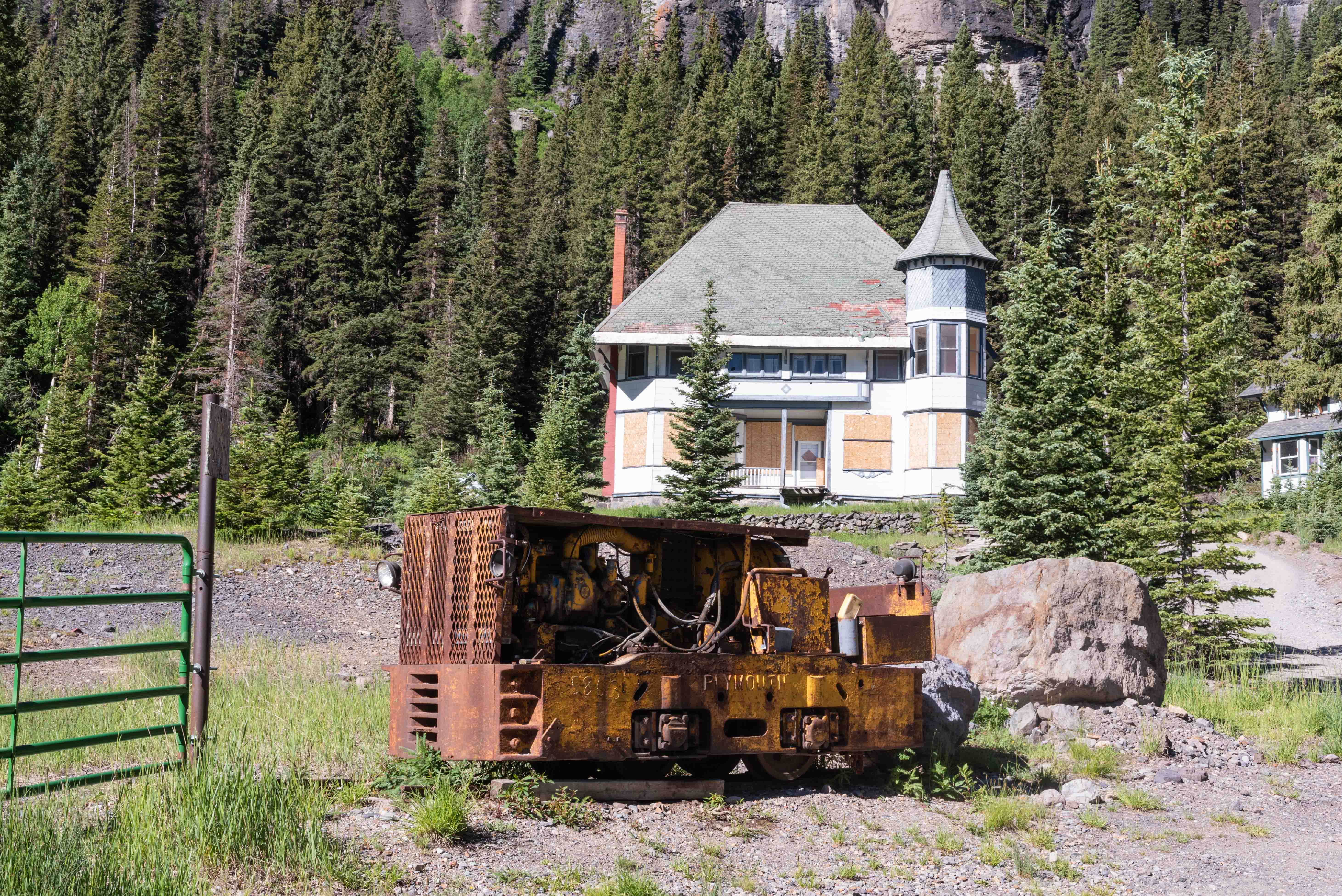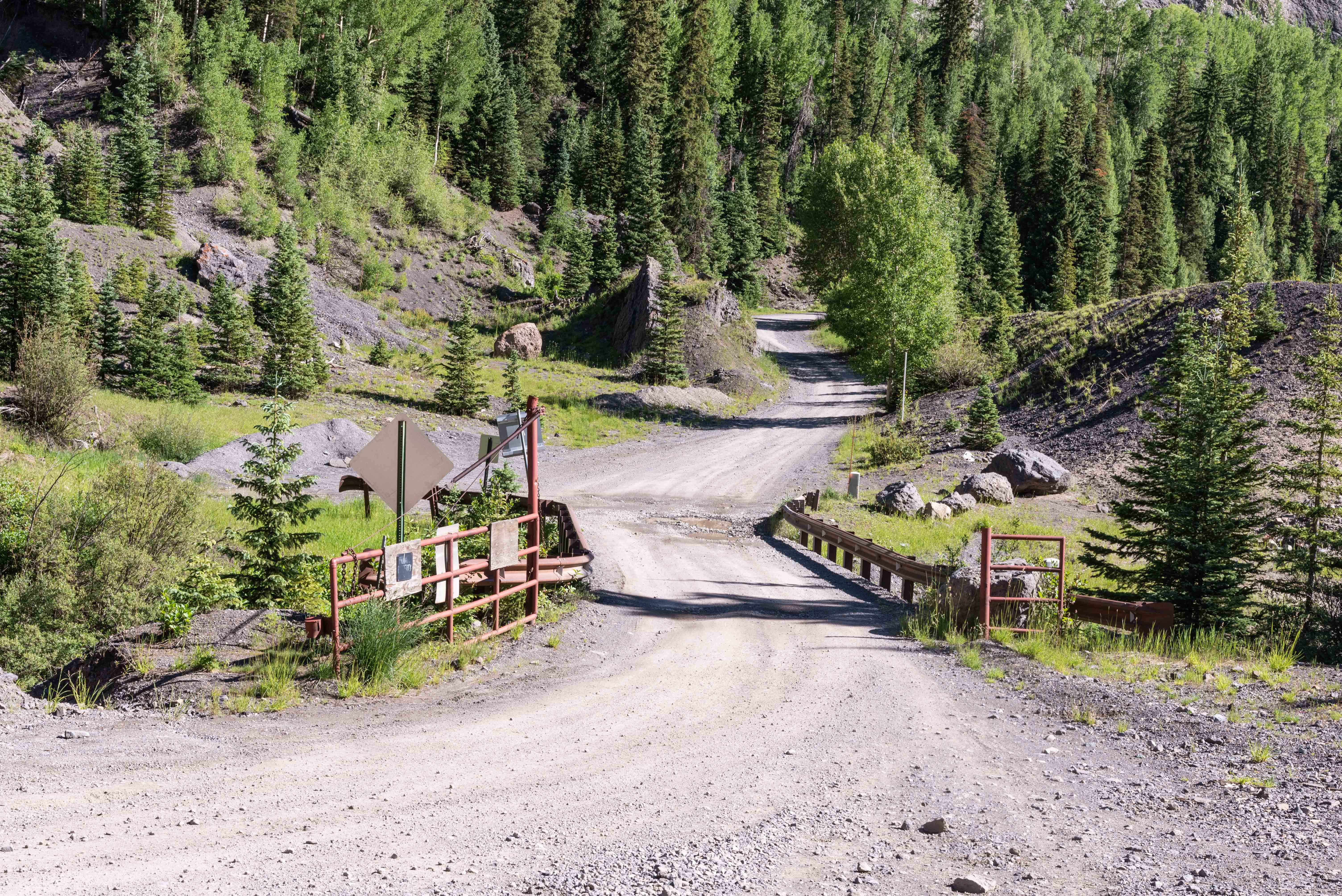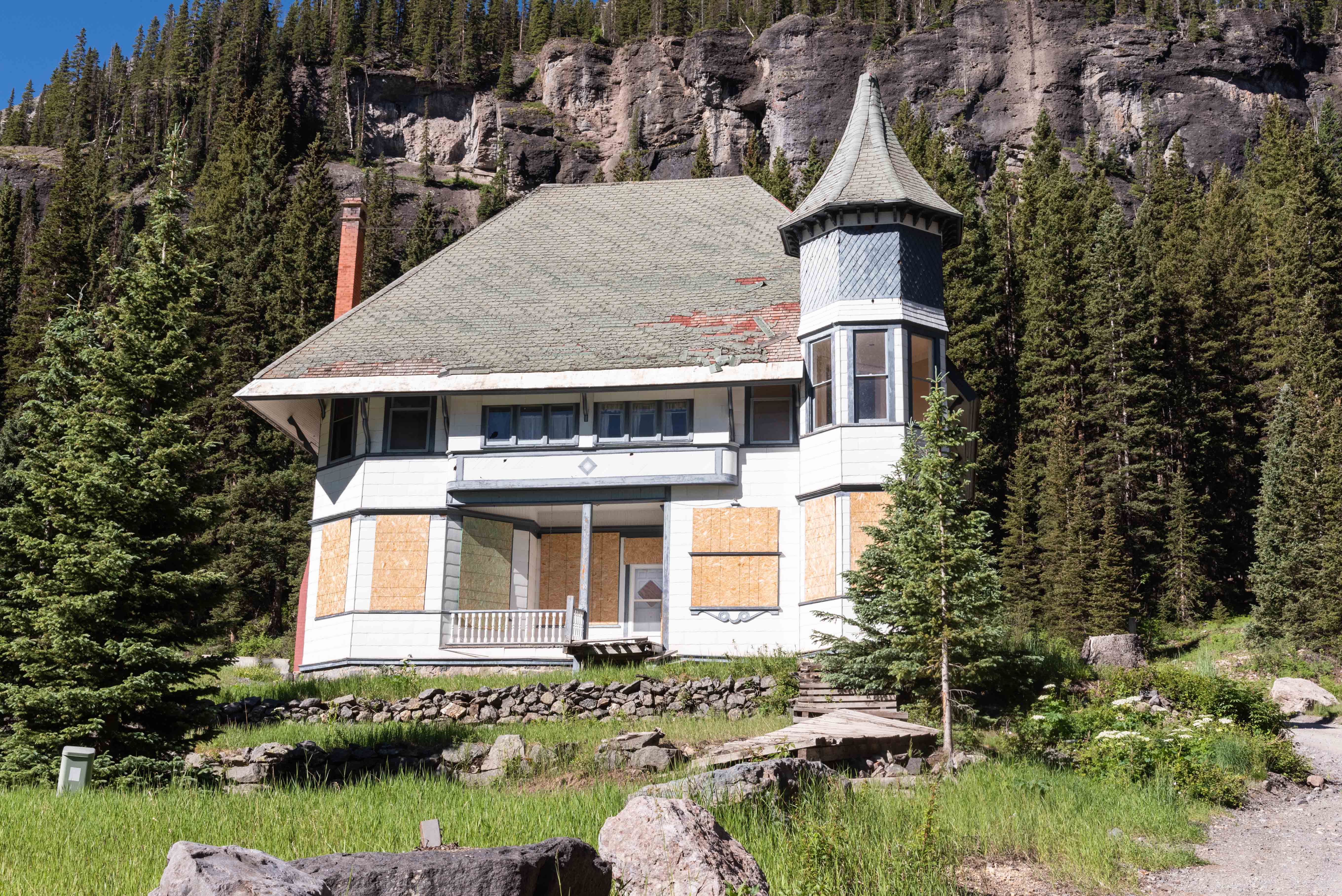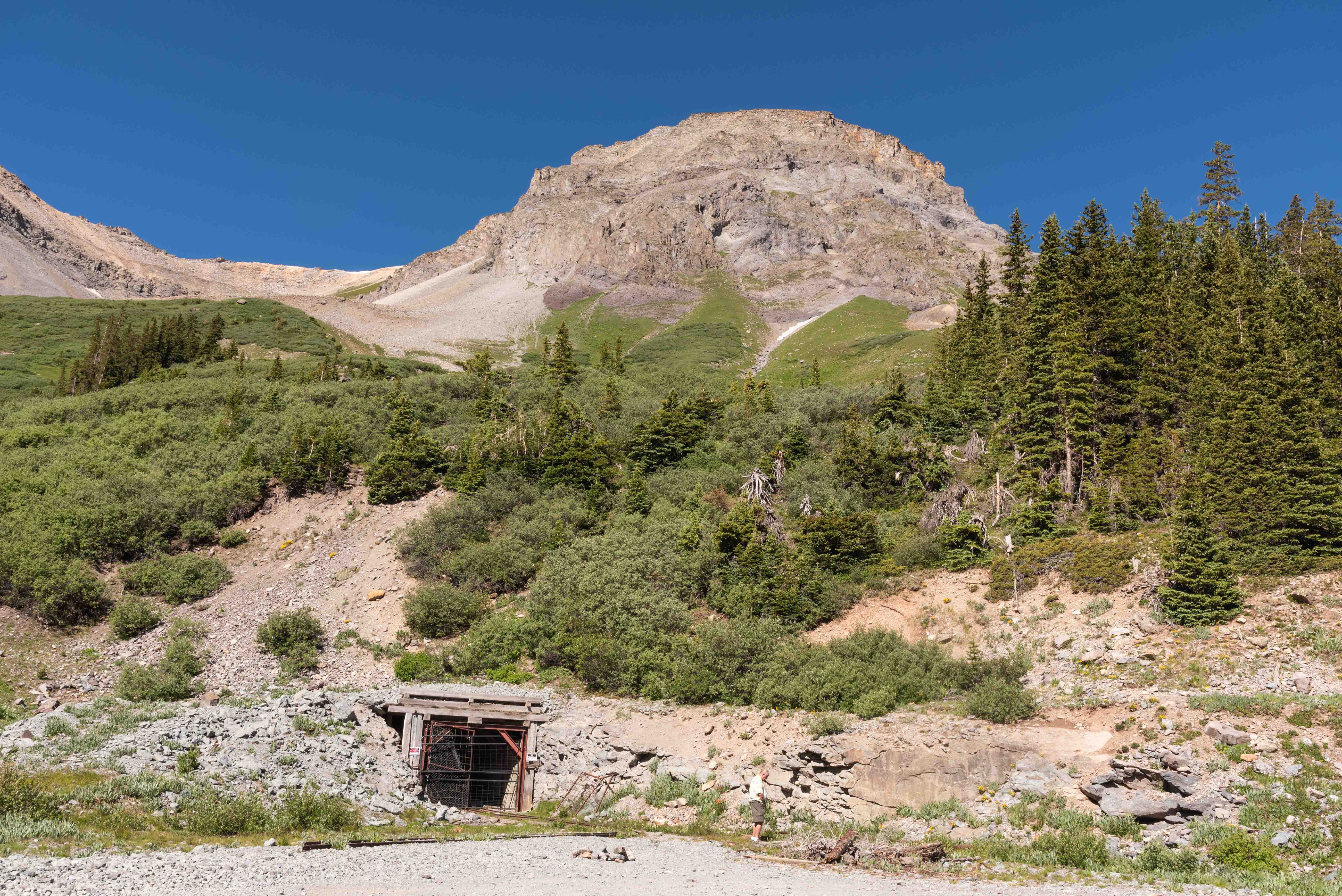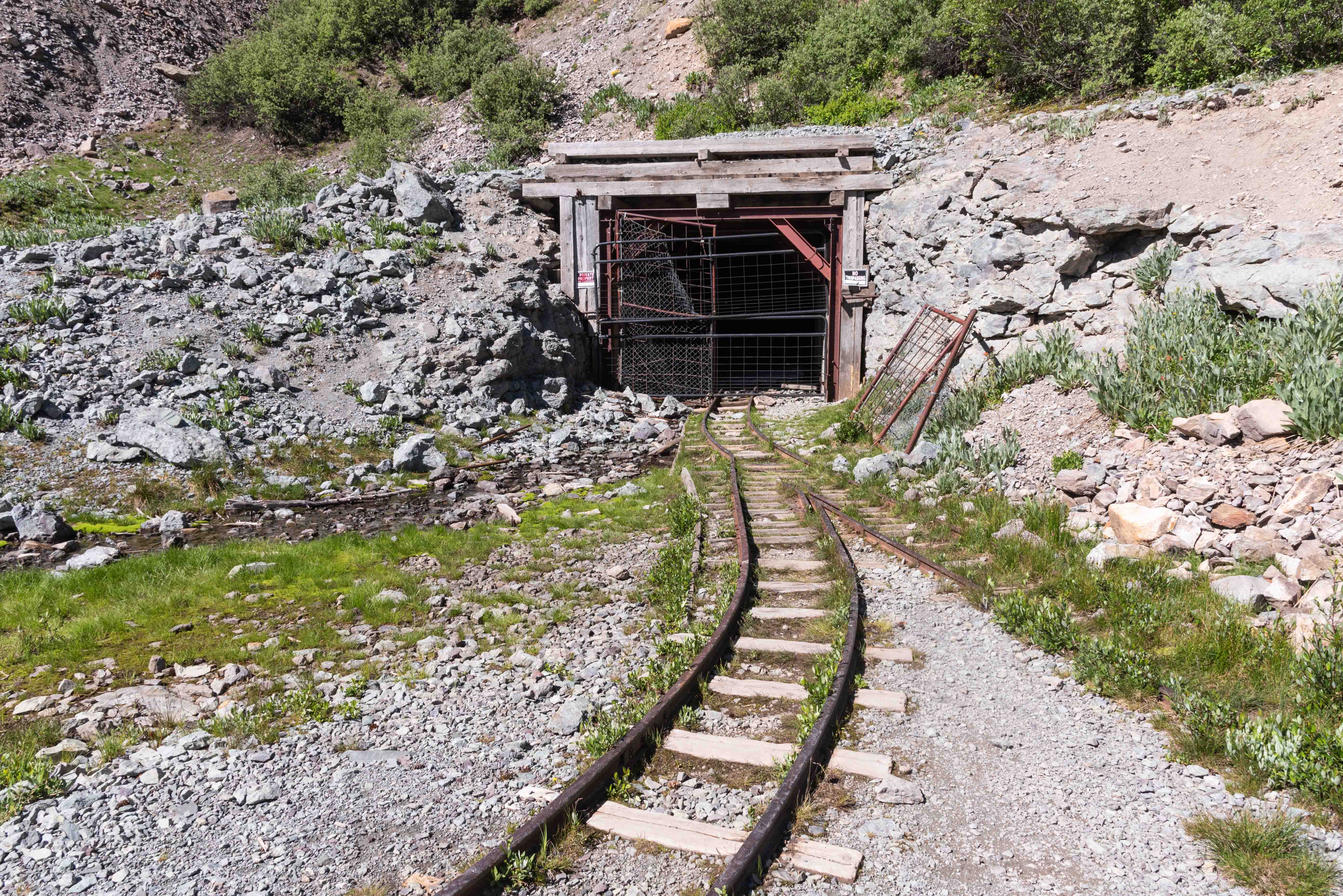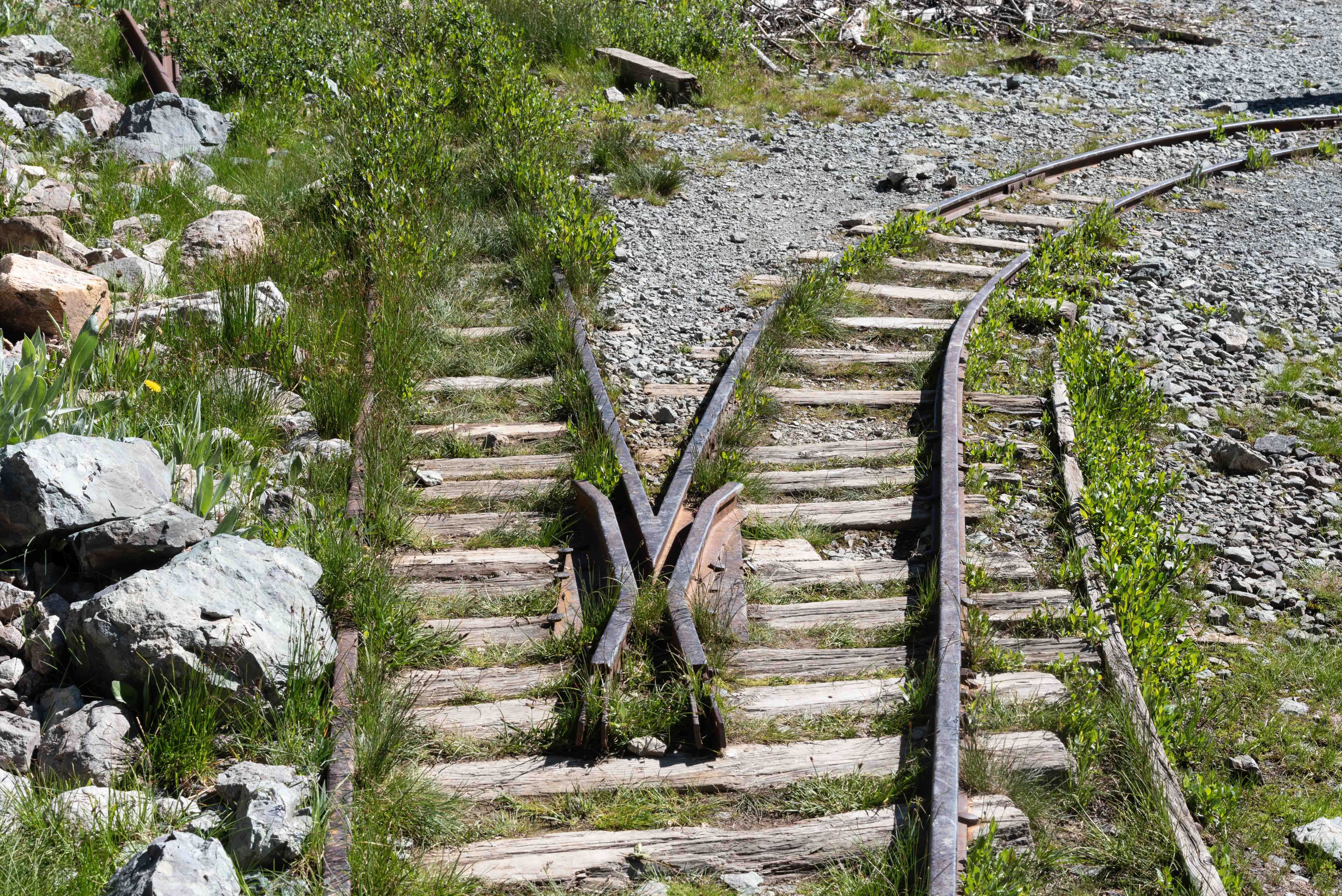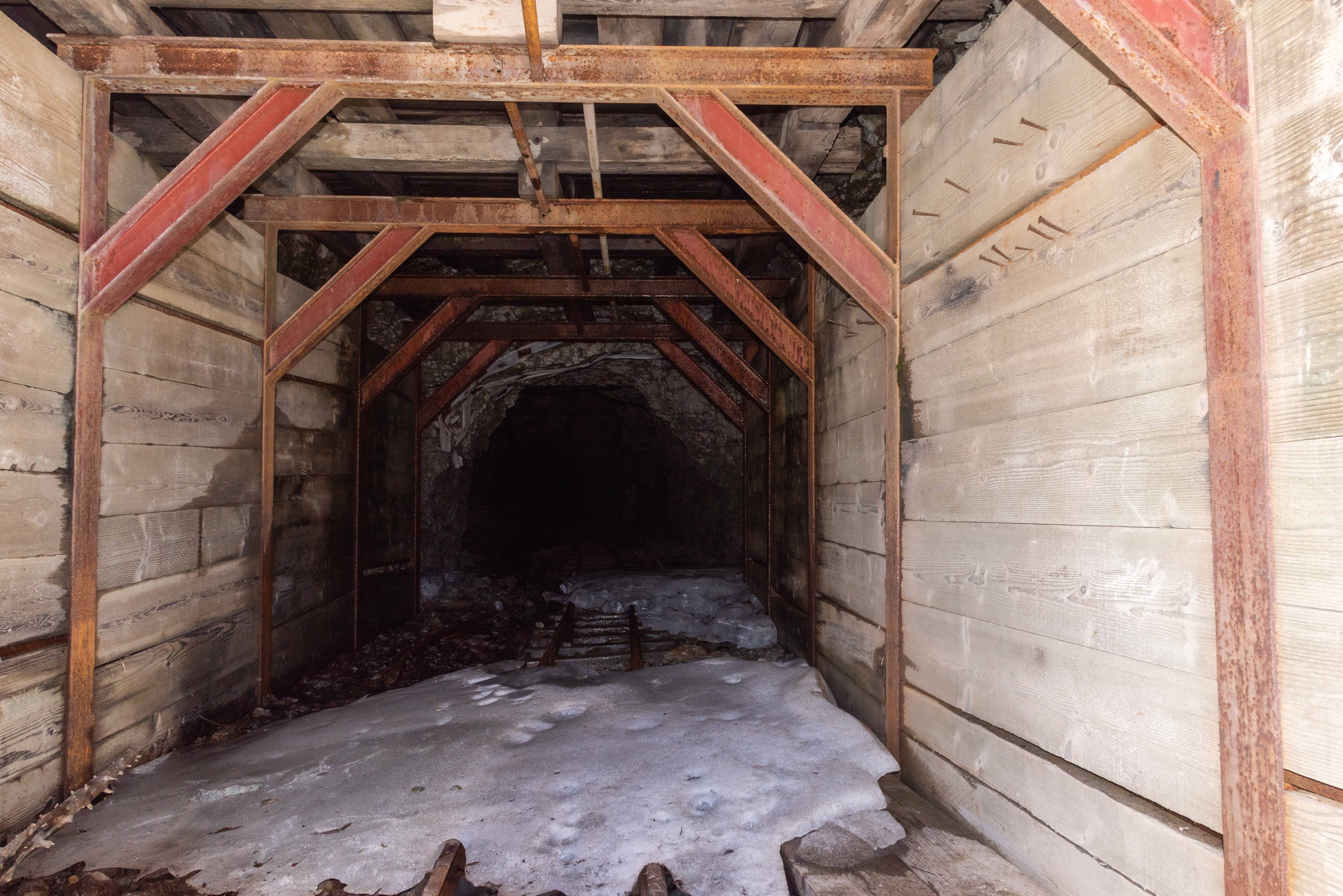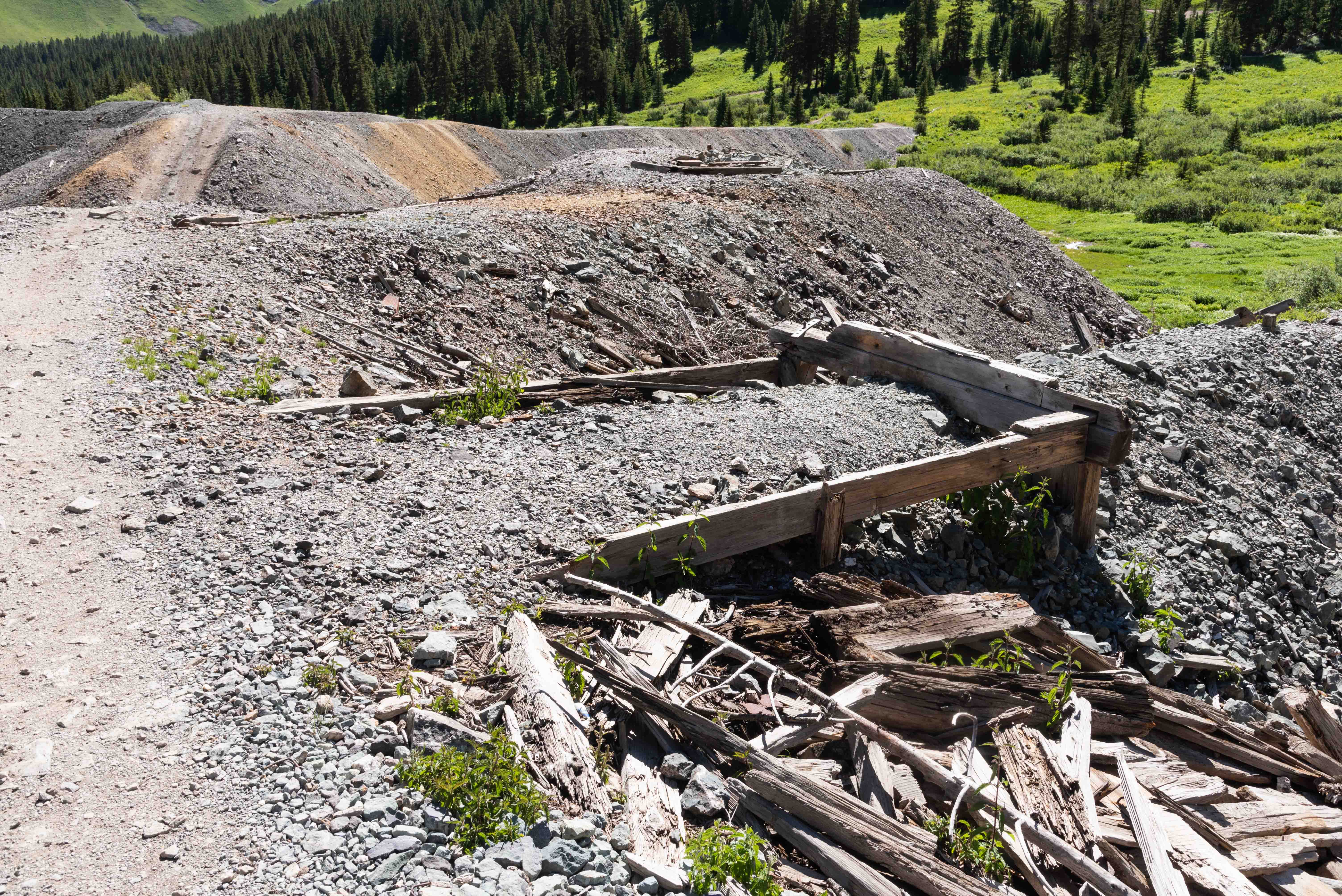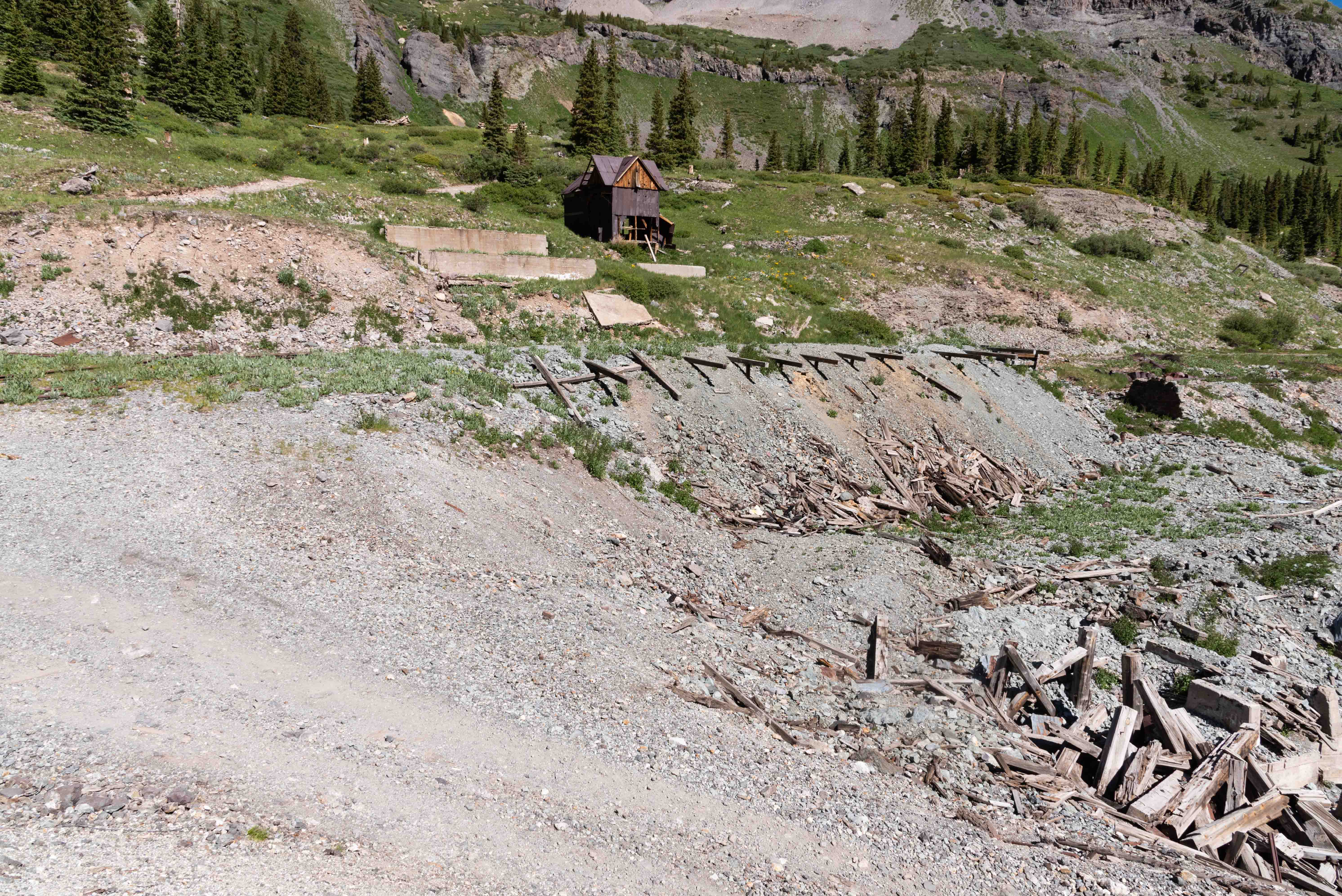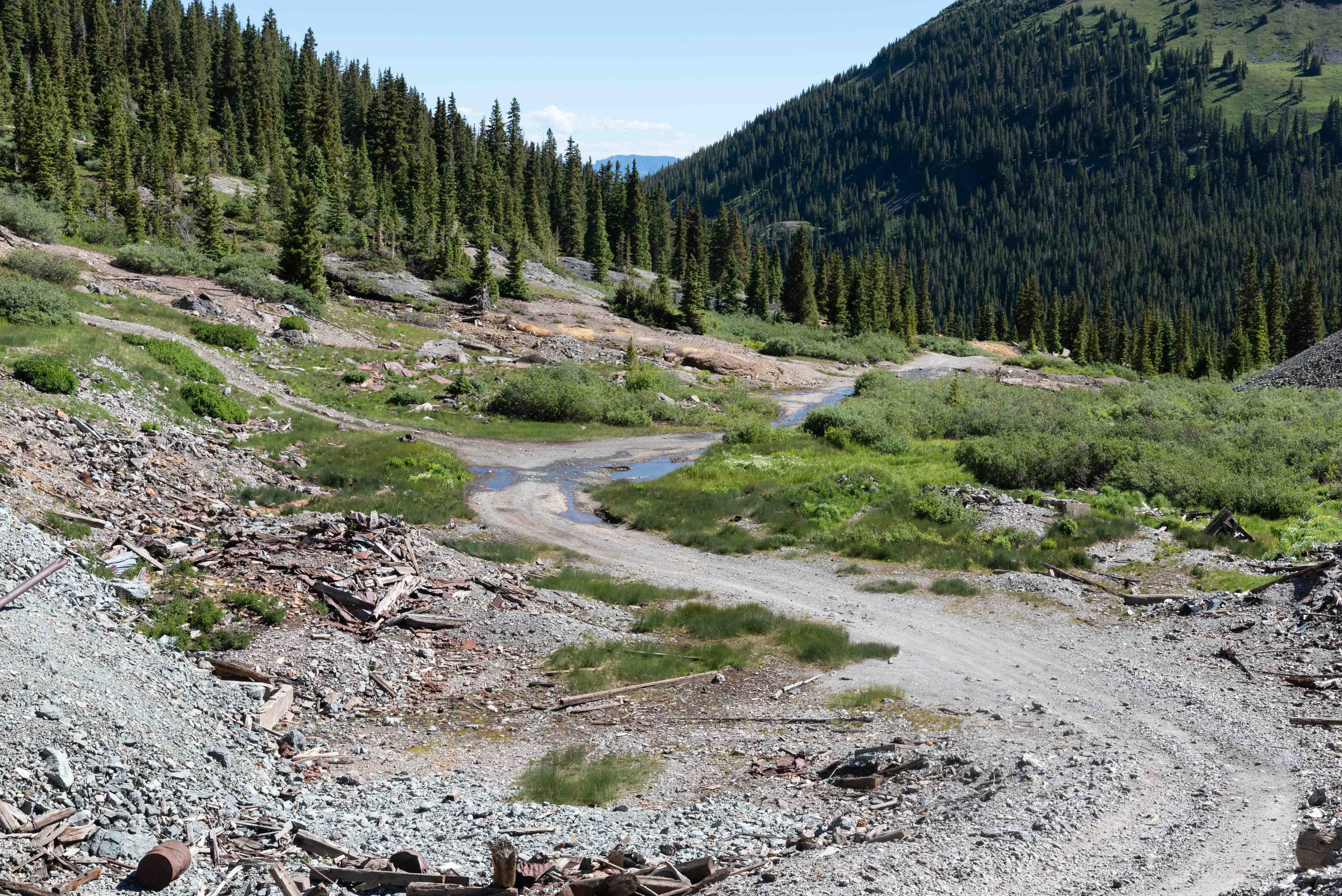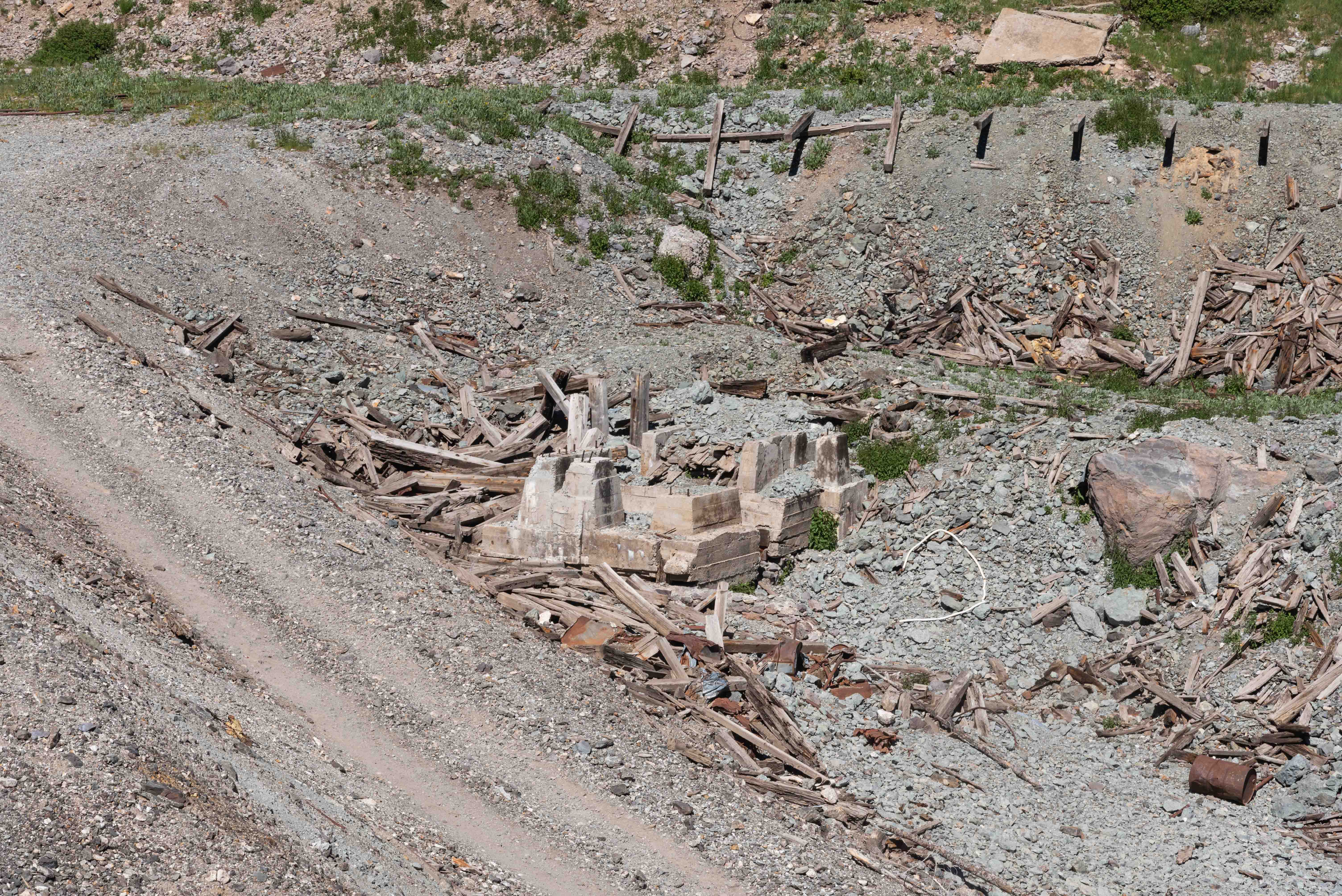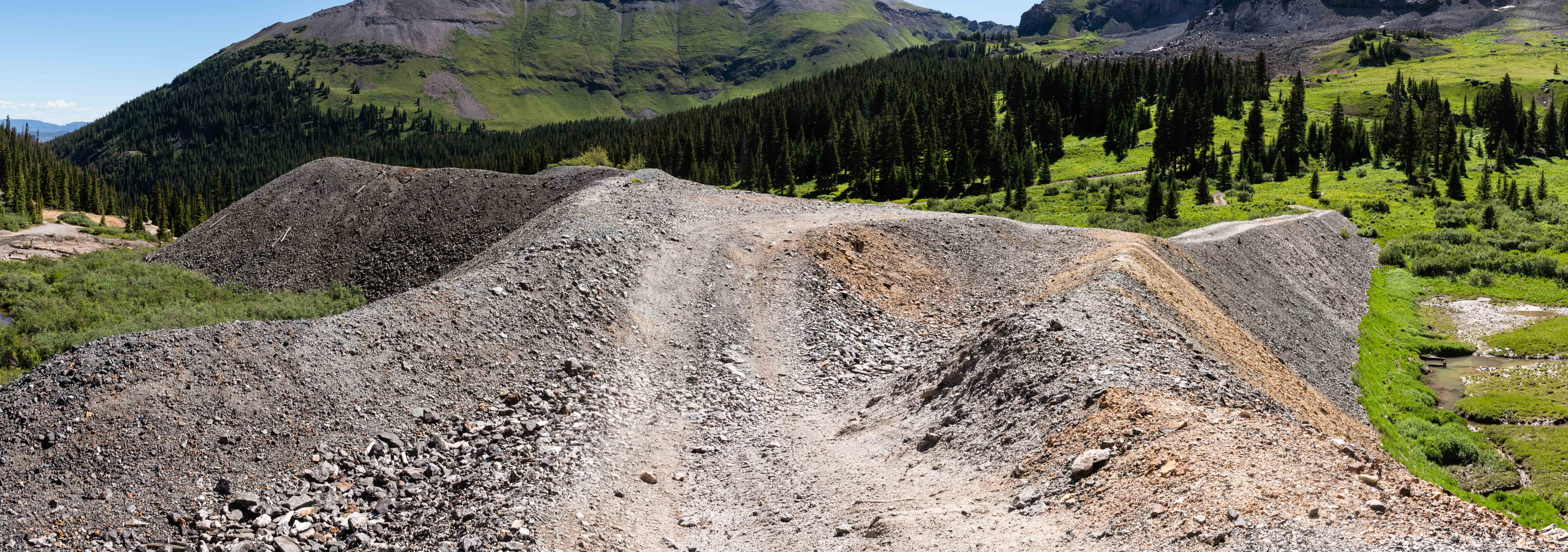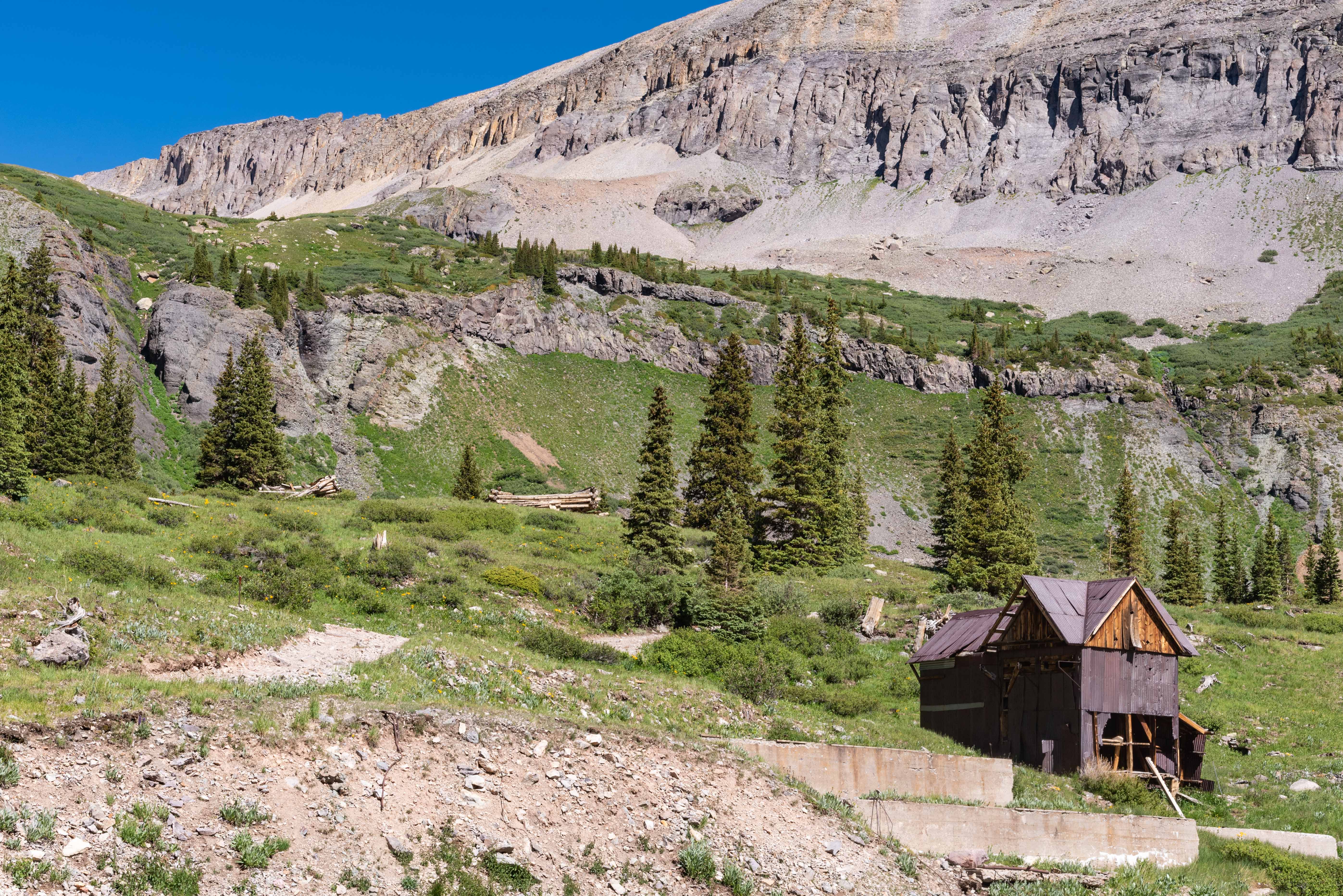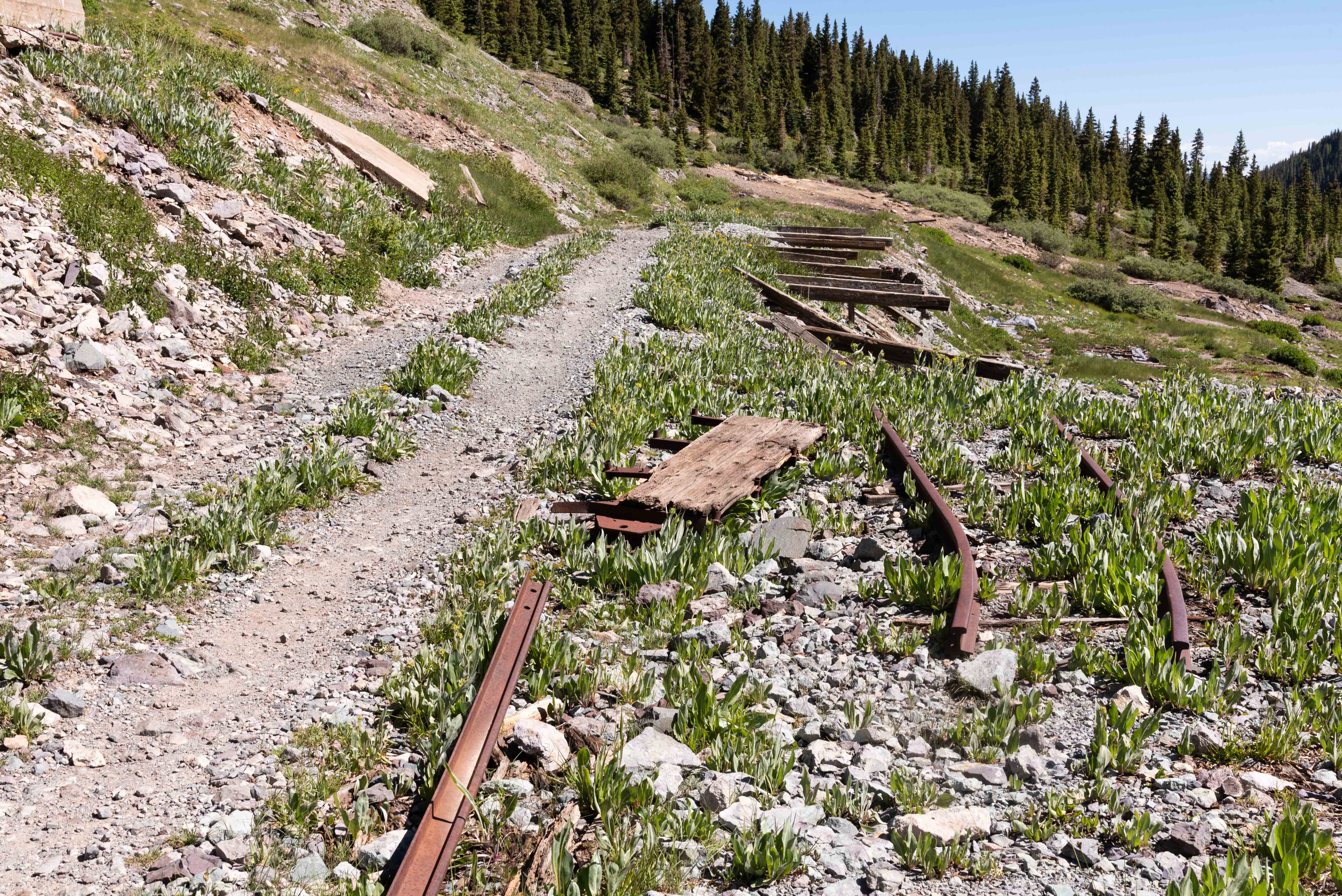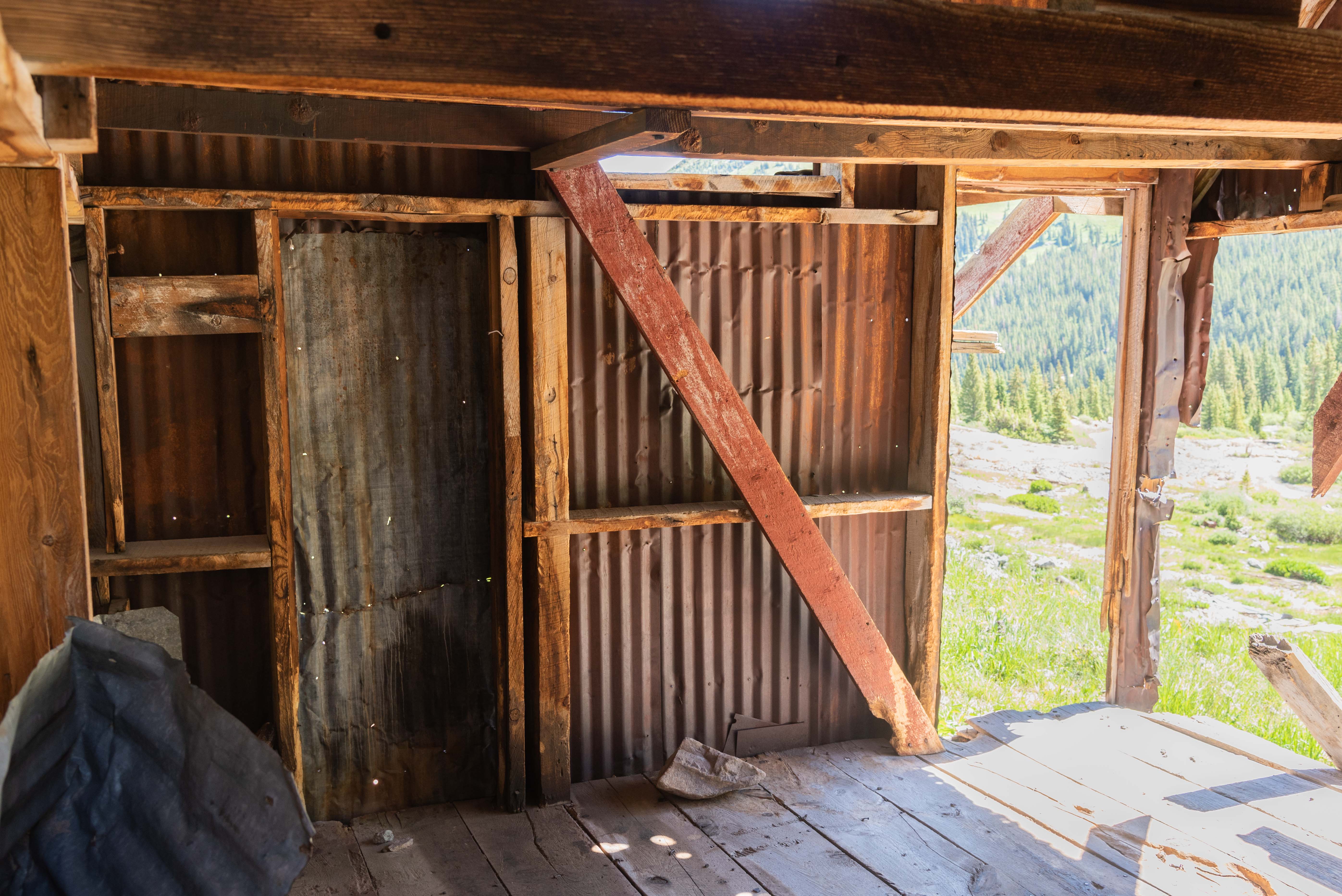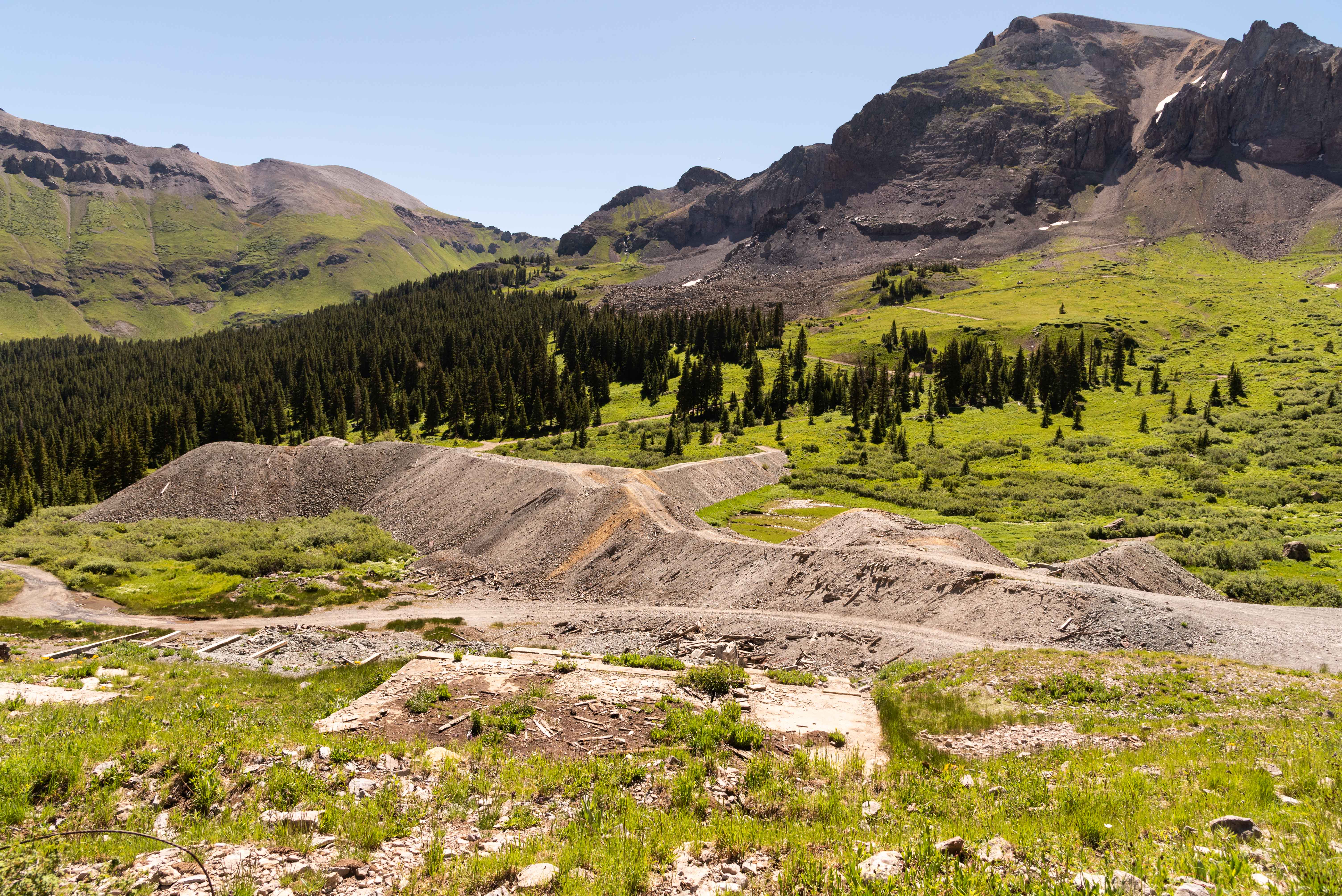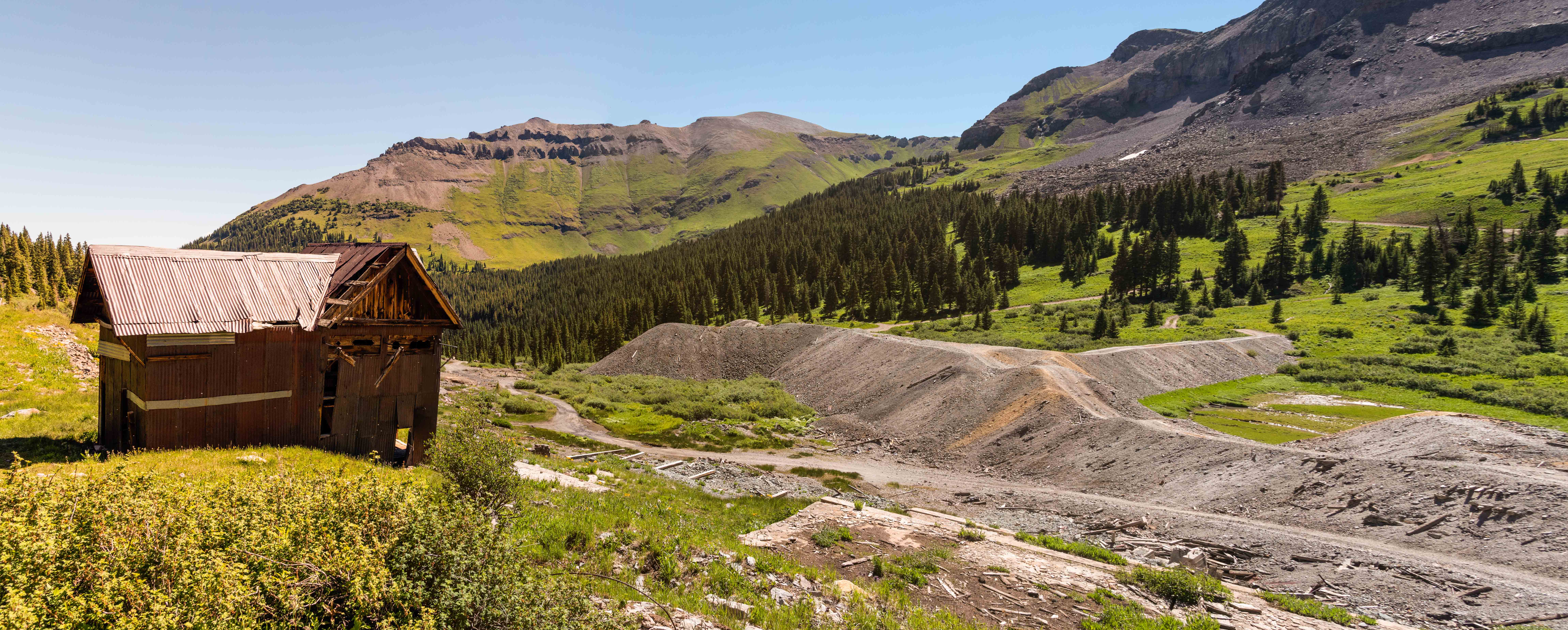Camp Bird Mine
Thomas F. Walsh suspected there might be gold in Imogene Basin and began sampling ore
from the old mine dumps in the area. Rich gold ore was found in the dump of the Una-Gertrude mine, and Walsh
found gold in the face of a drift in the Gertrude in 1896. He began surreptitiously acquiring most all of the old claims in the Imogene Basin.
He staked additional claims, including the Camp Bird. The mine was named after the Clark's Nutcracker, a species of crow that frequented the mines looking for handouts. The Camp Bird turned
out to be a bonanza, producing about 1.5 million troy ounces of gold, and 4 million troy ounces of silver from 1896 to 1990. Camp Bird's production would
be worth over $2 billion at today's prices.
Walsh treated his miners well. The Camp Bird was one of the first mines in the west to implement eight-hour
work days. Wages were high, equipment was modern, and safety and working conditions were the best.
The mine's boarding houses provided 5-star meals for the miners and were equipped with all the latest conveniences:
indoor plumbing, electricity, steam heat, and reading and smoking rooms. As a result the mine never experienced
the violent labor unrest that plagued the region in the early 1900s. Today most of the mine sites have been
remediated and the equipment removed.
Camp Bird Road
Camp Bird Road was originally a toll road built in 1883 by Otto Mears to serve the mines of
the Sneffels Mining District. Today it's Ouray County Road 361, providing access to both Camp Bird Mine and Yankee Boy Basin.
The road forks about 4.6 miles from Ouray, with Camp Bird Road as the left fork and Ouray County Road 26 as the right fork,
continuing on to Yankee Boy Basin. Camp Bird Road to lower Camp Bird Mine is fairly well maintained dirt and gravel
and open year round. It’s about 5 miles from Ouray to lower Camp Bird Mine.
The road from lower Camp Bird Mine (#14 level) to upper Camp Bird Mine (#3 level) is actually Ouray CR 26A, but I still
call it Camp Bird Road. It has a steeper grade and becomes rough and rocky (4-wheel high-clearance vehicles only).
The middle section travels along a bench for several hundred feet with a with a serious vertical dropoff. Passing on this
section is next to impossible. The upper section is rocky in places but easily navigable. A 4-wheel drive trail continues
from upper Camp Bird Mine over Imogene Pass into Telluride. I have included some snapshots taken from a dashcam video of
terrain along the way.
Approach to lower Camp Bird Mine
Approach to upper Camp Bird Mine
Camp Bird Mine #14 Level
Camp Bird Mine #14 level is located along Canyon Creek at an elevation of 9829 feet.
Tom Walsh built his Camp Bird mill at this level. A 9000 foot aerial tramway ran from the #3 level tram house to
the ore bins of the mill, a vertical distance of 1350 feet.
As ore production grew, more storage buildings, machine shops, and boarding houses were added at this level.
The crosscut adit at the 14th level was completed in 1918 and intersected the ore vein about 2000
feet below the surface. The mine office and several houses from the mine are still standing.
Camp Bird Mine #3 Level
The Camp Bird Mine #3 level adit is located at an elevation of 11,361 feet.
The #3 level adit was still being driven in November of 1898 when the aerial tramway
to the mill was completed. At that time ore was being sent from the
second level to the #3 level tram house for transport to the mill. When completed, #3 level
adit reached the Camp Bird ore vein some 800 feet below the surface and became the main
adit for the mine. Machine and carpenter shops, storage sheds, and a boarding house
were added at this level.
Background information: Wikipedia, westernmininghistory.com, and Camp Bird and the Revenue 1980 by J.L. Benham
Use the form on the Home Page to submit comments, questions, or suggestions. TD Productions Copyright © 2022
